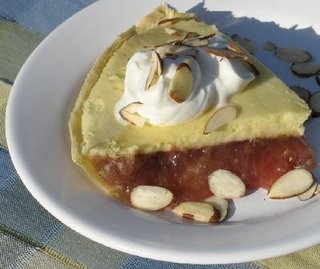Paris: Having a great meal based on sparse word knowledge
Somewhere hiding out in one of the ten or twelve boxes of books I have packed away awaiting my forever delayed move back home in Los Angeles is a tiny book called Marling Menu-Master in French.
This tiny pocket guide on my two previous trips, it turns out, had been both a God-send and culinary crutch.
At dinner two, on June 4, 2009, I went to I lovely little place nearby my chambre d’hotes called Chez Casimir. This brightly yellow card and its somewhere-off-Eastern-sounding name made me think I was in for north African fare.
After all, I am always in search for one great north African meal when in Paris. However, as soon as I entered the corner locale I knew it was a typical neighborhood traditional French restaurant. As it turned out, I was going to be the last customer, Casimir took that evening.
The menu was fixed price, which I always prefer in Paris. You know how much up front. That is so much better in Paris as well as in all of life.
Now let me digress. I have a problem with my brain. I cannot, no matter hard I try, remember things in French. I have a few words committed to memory in Russian from many years ago when I took it in college. I have the Hebrew alphabet from the class as well, despite not being Jewish and never able to read the language; and I have perhaps 200 or so words at my grasp in Spanish. However, when it comes to French there is simply a traffic jam in my neural net.
It may be the many accent marks used. It may be that the pronunciation is vastly different to my ears than any other language has been. It may be simply a lack of commitment on my part – no class, no time to study, no true practice and rehearsal.
So, Casimir brings his handwritten black board over to me and begins rattling off the lengthy menu and I need to interrupt because I do not understand. And I say: If you please, English.
This phraseology is particularly offensive I have discovered. But what is worse, is I think I am saying: do you speak English? So, the host reacts badly and I react confused and everything goes down hill very quickly.
Well, Casimir, says, pretty much, this is the menu, huh, its fixed price, and you let me know, ok. And he walks away. I feel terribly because the fifty times I have said parle vous anglaise? In my head throughout the day has failed with the utterance s’il vous plait, aiglaise?
So, I sit there. Me on one side of a bistro table and a giant blackboard in the other chair. I need only a dunce cap.
Then I realize, my Marling Menu-Master in French would have saved the day, but alas the heretofore unforeseen complications of the move from apartment dweller to mortgage prisoner shows itself in a new way.
So, I decide, as all culinary survivors must, to pick words I know.
In course one: Of the seven choices, I know – canard (duck).
In the entrée course: of the seven choices, I know four – joue de beouf (beef cheek), saumon (salmon), poulet (chicken – I think) and something-something asperge (asparagus).
In the dessert course: of the seven choices, I know – chocolat, chocolat chocolat, frambois (raspberry) and rhubarbes (rhubarb).
So, I select: duck, beef cheek, and rhubarb.
Why?
Well, I thought, I was ordering duck and I got pate of duck, though it was amazing. A small, nicely dressed green salad with a ceramic jug of cornichons and a large portion of hunter-style pate. It was yummy to the last morsel on the thick-cut, heavy country brown bread.
With the beef cheeks, I had regretted for a year not trying them since my last visit. So, I was definitely going to have them this time. However, what I learned here was that a beef cheek in one restaurant is very different from the same dish in another. While flavorful and tender, the mashed potato was the star of this hearty dish.
Beef cheeks and my year of regret is why this time around I am trying new things and with this meal, while trying words I knew I ended up trying dishes I never had. Success!
This final dish, dessert, was the most different dessert I have ever had. I am still thinking about it. It is a trip. It is something that has wowed me but also I am not yet quite sold on it. It is an odd experience.
The rhubarb was served as a soup. All the rhubarb was green and stewed either very tender or even very desiccated. Then a series of plump and perfect in appearance and taste raspberries were placed in the soup. Next, a large cannel (ok, Americans a large scoop) of chocolate mousse was placed in the center; however, it was hidden by the fabulous and perfect cookie crisp that gently sit atop it.
I am not sure whether to simply think of this dessert as a religious experience to be remembered or a culinary experience to be copied and tinkered with or a food experience to be reinvented and made into my own.
There is something philosophical about this dish that makes me pause. It’s kind of freaky.















